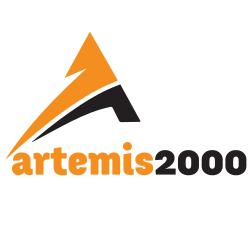University of Washington Observation of Some Dancing Lessons Whitewater Field Notes
whitewater Field notes
1) Conduct a 30-minute observation of a public area on campus where there are peopledoing something.2) While making jottings, capture enough detail that will allow you to describe thephysical and social setting, i.e., where and whom you are observing.3) Use your jottings to write expanded field notes on the full 30-minute observation.4) At the end of your expanded field notes, please include the following:a. An analytical memo that discusses what you think was happening in what youobserved (you are welcome to write an integrative analytical memo that makesconnections with your previous observations).b. A methodological memo that assesses how you think you are doing collectingobservational data. (Things you might consider include: any difficulties you arehaving, your confidence in the data you are collecting, things you think you aredoing well, places you think would be good to observe, etc.) From Jottings to Field Notes
• Write field notes as soon as possible after
conducting observations:
– Immediately afterward, your notes will be rich and
full of detail
– Less of a burden to write your notes
– If you wait a few days, writing becomes a chore; it
is more difficult to remember; you’ll tend to gloss
and summarize and lose important detail
• What is your stance?
– Prior experiences, attitudes, beliefs
• Can affect the tone you take in writing your notes.
• How do you frame events (consciously/unconsciously)?
– Are you being descriptive but not evaluative?
• From jottings to field notes:
– Write freely and clean later:
• Write loosely, getting everything you can remember on
the page with as much detail as possible. At first, you
do not need to worry about your audience or feel like
someone is looking over your shoulder.
• After you type as much as you can as fast as you can,
you can always go back and rewrite the notes – not to
change the content but to make them read better.
• What to write/what not to write
– You can’t write everything
– So what do you write?
• We want detail and descriptive accounts, but
descriptive about what?
–
–
–
–
What are people doing?
How are they doing it?
Someone is working on a computer. How?
Three people are sitting at a table talking. How? Who is
talking more? How are they talking? How are people listening
or not listening or listening while looking around the room or
checking their phone or cutting each other off?
• http://opinionator.blogs.nytimes.com/2013/1
2/23/the-emotional-power-ofverbs/?_php=true&_type=blogs&_r=0
• Choices:
– Observe: describe the overall scene
• Who is present (specific/general)
– Depends on number of people
– Important to note: what may seem to be minor or
unimportant events at the time may prove to be
very important later.
• Point of View:
– First Person – your experience
– Third Person – describing what others are doing
• Your typed field notes can include both
perspectives.
During and After Writing the Field
Notes
• Asides: [bracket questions you think of when
writing, or other ideas concerning what you think
is going on.]
• Commentary: [a more elaborate reflection on a
specific event or issue]
• In-Process Memos: [after writing field notes,
these are more integrative memos that often
combine several sets of field notes. Can include
ideas about what should be observed next and/or
interpretations of what has been observed thus
far.]
Observing and Jotting in the Field
Where and what are you going to
observe?
• Today, you’ll have a chance to practice
observing a public place on campus and
jotting down notes.
– Where? Up to you, but pick a place where there
are people who are interacting with one another.
– What are you going to write down, and how are
you going to write it?
Emerson, Fretz, and Shaw –
Recommendations for Jottings
• Making jottings isn’t just a writing activity; it is
a mind-set.
• 1) Jot down key components of observed
scenes or interactions.
• 2) Avoid generalizations – e.g., compliant
(does not capture actual behavior and
interaction; the goal is to write close
descriptions of what takes place).
• 3) Jot down concrete sensory details about
actions and talk. Show rather than tell about
people’s behavior (records of actual words,
phrases, or dialogue that the researcher wants
to preserve in as accurate form as possible.
– Don’t say someone was angry; describe the
words, behaviors, expressions, bodily movements,
etc. that would lead you to characterize the
person as being angry.
• The jottings you take in the field are intended to
assist you in later writing a detailed description of
the scene.
• Write down what will help you remember what
you observed so you can write the scene in a way
that places the reader in that location, at that
moment, so they can see, smell, hear, and feel
what transpires in real time.

